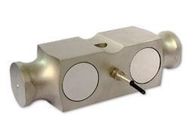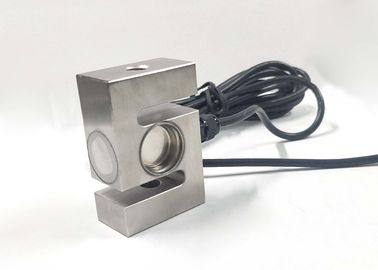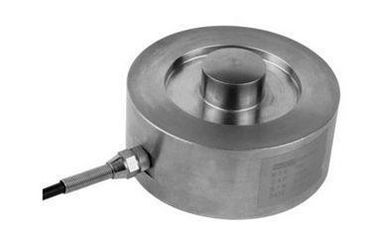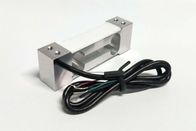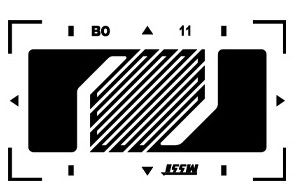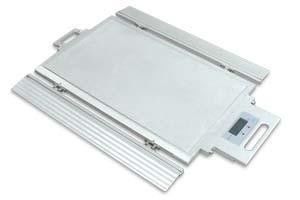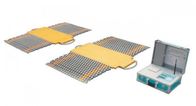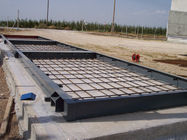Product Description:
The Foil Strain Gauge is made up of a carrier material, which can be Phenolic Aldehyde, Polyimide, or Epoxy. The carrier material is bonded with a thin layer of foil, which is the sensing element of the gauge. The foil is usually made up of materials such as Constantan, Karma, or Nickel-Chromium. The foil is designed to stretch and compress when subjected to a load or stress. This change in the shape of the foil results in a change in its resistance. This change in resistance is measured by the gauge and is proportional to the amount of deformation or strain experienced by the object.
One of the key features of the Foil Strain Gauge is its high accuracy. The gauge has a hysteresis of ±0.05% Full Scale, which means that it is capable of detecting even the smallest changes in deformation or strain. This high accuracy makes the gauge ideal for use in applications such as material testing, structural analysis, and quality control.
The Foil Strain Gauge has a measurement range of 0-1000 microstrain, which makes it suitable for use in a wide range of applications. The gauge can be used to measure strains in materials such as metals, plastics, and composites. It can be used in applications such as load cells, torque sensors, and pressure sensors.
In summary, the Foil Strain Gauge is a highly sensitive sensor that is designed to measure micro strains in various materials. The gauge is made up of a carrier material and a thin layer of foil, which is the sensing element of the gauge. The Foil Strain Gauge has a hysteresis of ±0.05% Full Scale and a measurement range of 0-1000 microstrain. The gauge is ideal for use in applications such as material testing, structural analysis, and quality control.
Features:
- Product Name: Foil Strain Gauge
- Creep: ±0.05% Full Scale
- Working Temperature: -20~+80℃
- Usage: Load Cell Sensor
- Measurement Range: 0-1000 Microstrain
- Service: Custom
- Features:
- Full Bridge Strain Gauge
- Linear Strain Gauges
- Foil Strain Gauges
Technical Parameters:
| Dimensions |
5 Mm X 5 Mm |
| Operational Temperature |
-20~+80℃ |
| Creep |
±0.05% Full Scale |
| Hysteresis |
±0.05% Full Scale |
| Silicon |
4.7×0.22×0.02 |
| Strain Gage Type |
Single Element |
| Measurement Range |
0-1000 Microstrain |
| Service |
Custom |
| Model |
BF350--3HA-A |
| Material |
Steel Or Alloy Aluminum |
Applications:
One common application for the BF Foil Strain Gauge is in load cell manufacturing. These strain gauges can be used to accurately measure the amount of weight or force applied to a load cell, ensuring that it is functioning properly. The operational temperature range of -20~+80℃ also makes it suitable for use in a variety of environments.
Another scenario where the BF Foil Strain Gauge can be useful is in the automotive industry. Linear strain gauges can be used to measure the deformation of car bodies and other components, helping engineers design safer and more efficient vehicles. The BF model from Top Sensor, with its high accuracy and reliability, is ideal for this application.
Manufacturing and quality control are other scenarios where the BF Foil Strain Gauge can be used. For example, it can be used to monitor the tension in industrial machinery, ensuring that it is operating within safe and effective parameters. It can also be used to measure the deformation of materials during manufacturing, helping to ensure consistent quality across all products.
Overall, the Top Sensor BF Foil Strain Gauge is a versatile and high-quality product that can be used in a variety of scenarios. Whether you're working in load cell manufacturing, automotive engineering, or any other field that requires accurate measurement of linear strain, the BF model is a reliable choice. And with its place of origin in China and silicon dimensions of 4.7×0.22×0.02, you can be confident that you're getting a high-quality product at a competitive price.

 Your message must be between 20-3,000 characters!
Your message must be between 20-3,000 characters! Please check your E-mail!
Please check your E-mail!  Your message must be between 20-3,000 characters!
Your message must be between 20-3,000 characters! Please check your E-mail!
Please check your E-mail! 

